While Hispanics represent 16-percent of the adult population, they account for 23-percent of inmates in the United States.
According to 2018 Census data, Black residents were 5.5 more likely to be incarcerated than white residents in Massachusetts; Latinos in Massachusetts were 4 times more likely to be incarcerated than whites. MassINC reports that if Massachusetts incarcerated Black and Latino residents at the same rate as whites, the number of people in state and county correctional facilities would fall by approximately half.
According to the Pew Research Center, the gap between White and Hispanic imprisonment narrowed between 2007 and 2017, but not because of a decrease in Hispanic prisoners. Instead, the number of White prisoners fell while the number of Hispanic inmates increased slightly. At the end of 2017, there were 100,000 more White inmates than Hispanic inmates (436,500 vs. 336,500), down from an inmate difference of 169,400 in 2007 (499,800 White inmates vs. 330,400 Hispanic inmates).
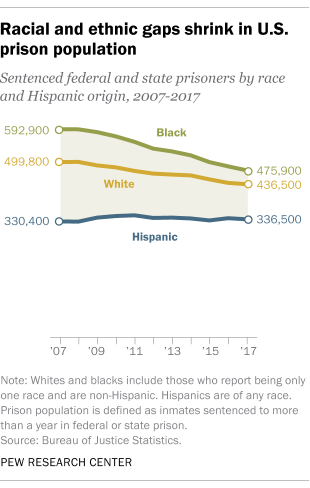
The particular drivers of disparity may be related to policy, offending, implicit bias, or some combination.
The Sentencing Project finds proposed explanations for disparities range from variations in offending based on race to biased decision making in the criminal justice system, and also include a range of individual-level factors such as poverty, education outcomes, unemployment history, and criminal history.
Health concerns in overcrowded prisons
Preventing the spread of coronavirus in prisons and jails is an incredibly challenging task. Currently, data collected by The New York Times shows that nine of the nation’s top ten COVID-19 hot spots are correctional facilities. The number of infected inmates and prison staff has topped 70,000 — the count doubled between mid-May and mid-June — and there have been at least 627 virus-related deaths, according to Croakey.
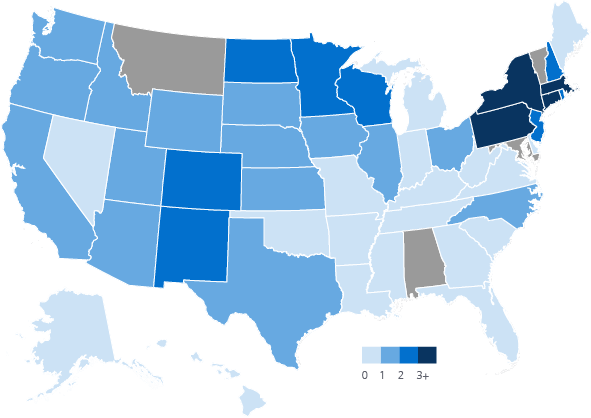
Prison staff are in close contact with inmates and move back and forth between their workplaces and the communities where they live. There is also an enormous churn of inmates in and out of these facilities — the average time in jail is 25 days.
The Prison Policy Initiative (PPI) reports high rate of coronavirus infections and deaths in correctional facilities is due to their population density: incarcerated people frequently have to sleep, eat, and shower within a few feet of one another, and share common amenities such as phones. Public health experts have been clear that reducing facility density — allowing people to return home — is the most critical and necessary step to save lives.
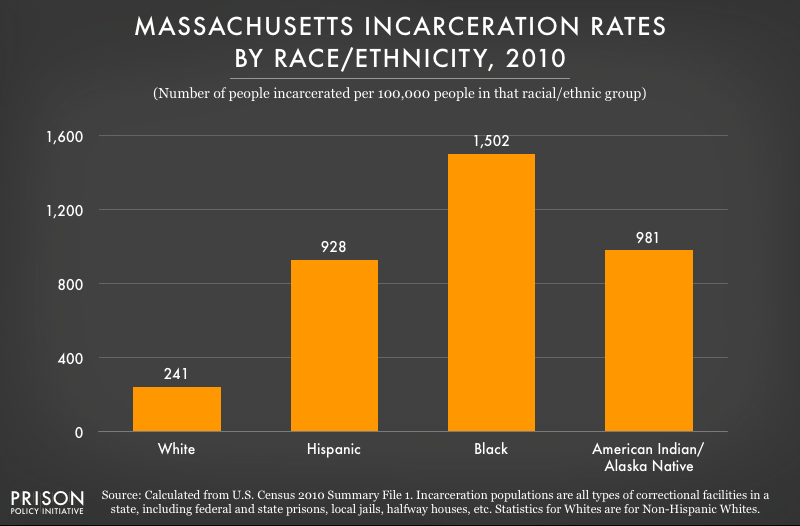
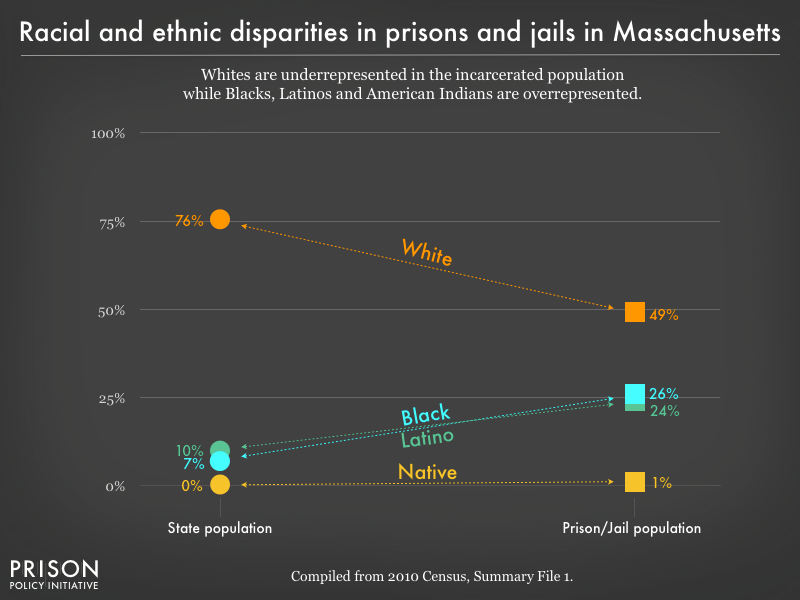
The American Civil Liberties Union (ACLU) and PPI evaluated the actions each state took to save incarcerated people and facility staff from COVID-19. They found that most states took very little action, and while some states did more, no state leaders should be content with the steps they’ve taken. Massachusetts received a failing grade.
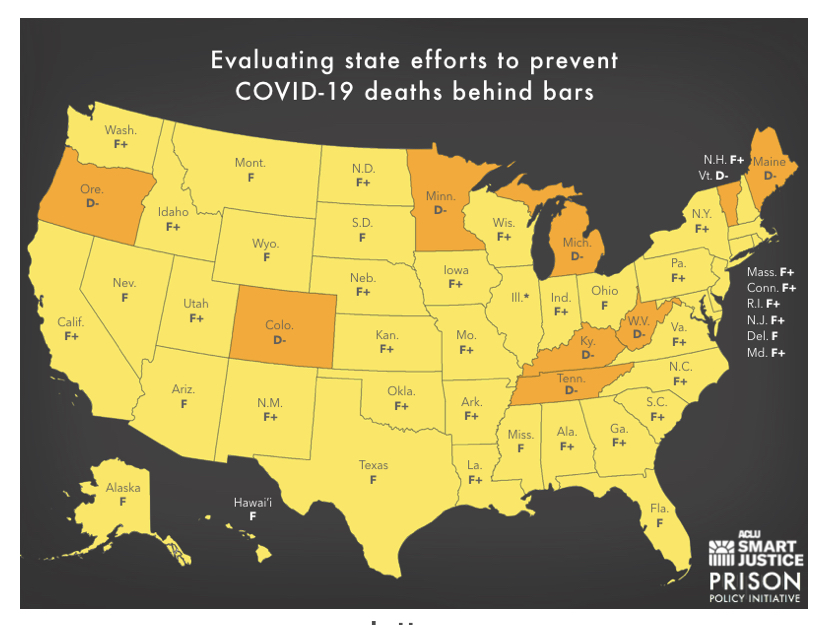
To assess the degree to which each state has responded to the COVID-19 pandemic and the particular threat of viral infection behind bars, the group looked at whether:
- The state Department of Corrections provided testing and personal protective equipment (PPE) to correctional staff and the incarcerated population. (maximum 65 points) ⤵
- The state reduced county jail populations and state prison populations. (maximum 300 points) ⤵
- The governor issued an executive order — or the Department of Corrections issued a directive — accelerating the release from state prisons of medically vulnerable individuals and/or those near the end of their sentence. (maximum 60 points) ⤵
- The state published regularly updated, publicly available data on COVID-19 in the state prison system. (maximum 60 points) ⤵




